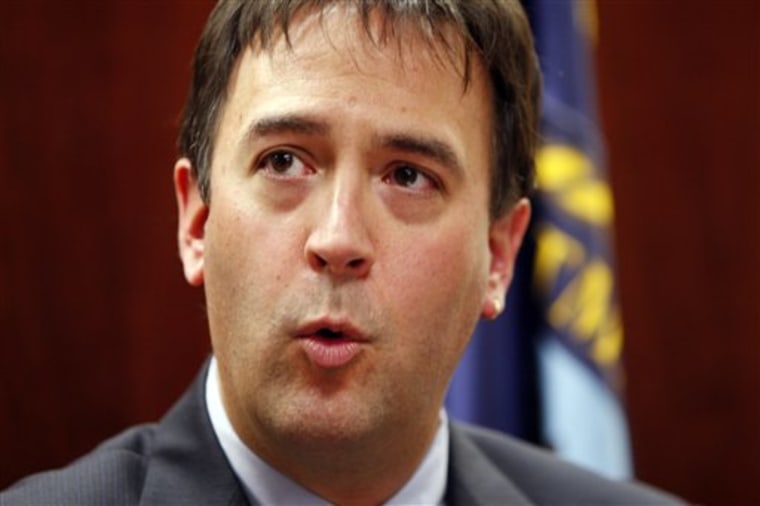Military medical researchers say their efforts to reverse the rising number of suicides among servicemembers are based on "good ideas," but they don't know which prevention programs work and which don't. They launched a $17 million study Wednesday to find out.
None of the current training programs is evidence-based, said Army Col. Carl Castro, director of the Military Operational Medicine Research Program at Fort Detrick, Maryland.
"It's good ideas — experts think that this is what we need to do — but we do not have any evidence that that training actually in fact prevents suicide," he said.
The new three-year project, funded by the Army, will develop a network of researchers to study multiple aspects of suicide, look at the work of other studies and then compile a database so other researchers and people running suicide-prevention programs can see what is effective.
More than 1,100 U.S. servicemen and women killed themselves between 2005 and 2009.
In July, the Army announced a $50 million study of suicide and mental health involving about 500,000 service members and four other research institutions. That is separate from this initiative, which will be directed by the Veterans Affairs Medical Center in Denver and Florida State University.
"We know we're not going to solve the suicide problem in the military with this three-year research consortium," Castro said. "But what we hope to do at the end of this three years is to lay a very solid foundation on which other research can be built."
Denver VA researcher Peter Gutierrez said the database sets this project apart from others.
It will include information from studies initiated by this project as well as studies done in other projects worldwide, he said, and it will be immediately available to policymakers.
"That aspect of the consortium, I think, is really quite unique and something that we were very careful to design," he said.
The number of researchers and study subjects involved will depend on the topics chosen, Gutierrez said.
